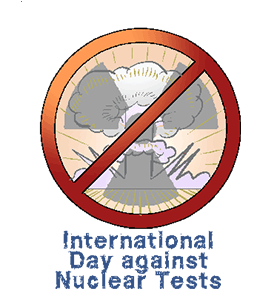International Day against Nuclear Tests
Quick Facts - AU
| HashtagsCompiled on | #IDANT, #AgainstNuclearTests |
|---|---|
| 2024 Date | 29 August 2024 |
| 2025 Date | 29 August 2025 |
2024 Holidays & Dates - US
| Australian & Common Holidays | ||
| Misc. & Int'l. Observances | ||
| Christian Holidays | ||
| Jewish Holidays |
|
|
›
|
|
